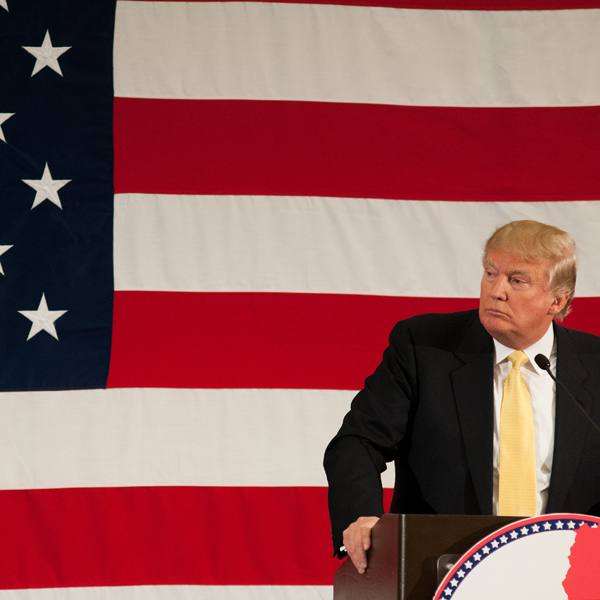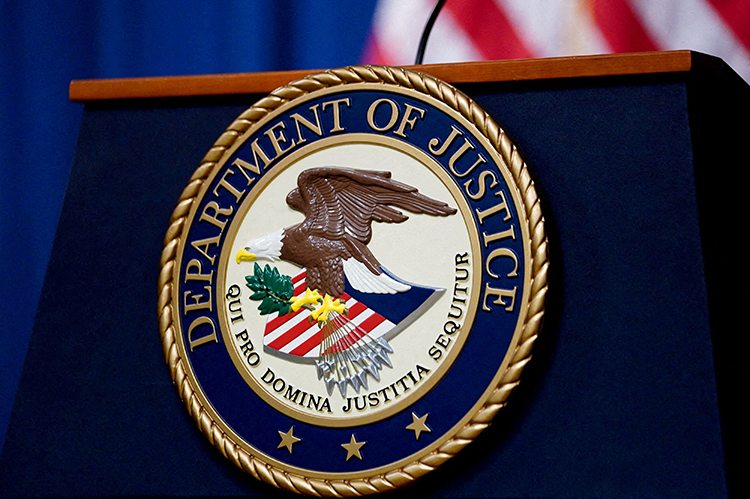Will Trump assert executive privilege in travel ban trials? Seattle judge lets case proceed

Photo of President Donald Trump by Andrew Cline / Shutterstock, Inc.
Citing President Donald Trump’s “see you in court” tweet, a federal judge in Seattle on Monday allowed a challenge to the president’s temporary travel ban to proceed in his court without delay.
The decision by U.S. District Judge James Robart sets the stage for a new conflict between the branches of government. Robart would have to decide whether to require administration officials to testify in depositions and what type of evidence should be disclosed to the two states that are suing, the Wall Street Journal (sub. req.) reports.
In response, the White House would likely assert executive privilege, according to the Wall Street Journal.
In the hearing on Monday, Robart rejected a request by Justice Department lawyers to delay the case while the San Francisco-based 9th U.S. Circuit Court of Appeals decides whether to hold an en banc hearing on Robart’s nationwide order halting the ban. “I thought the president said, ‘We’ll see you in court,’ ” Robart said, according to coverage by Politico, the New York Times and the Associated Press. Robart was referring to Trump’s tweet after the 9th Circuit allowed the nationwide injunction to remain in place.
Ruling on Monday in a different case challenging the ban, U.S. District Judge Leonie Brinkema of Alexandria, Virginia, issued a preliminary injunction halting the ban that applies only to Virginia residents and students, the Washington Post reports. Brinkema said Viginia had produced evidence that Trump’s order was motivated by religious prejudice.
Trump’s executive order temporarily bans entry into the United States by residents of seven majority-Muslim countries and by all refugees.
Lawsuit plaintiffs may seek testimony from Rudy Giuliani on whether the motive for the travel ban was religious discrimination. In an interview with Fox News last month, Giuliani said Trump had asked him for advice on how to create a Muslim ban that is constitutional.
Stanford University law professor David Freeman Engstrom told the Wall Street Journal that the White House could assert a form of executive privilege that protects communications related to the formulation of policies. Judges considering the privilege would have to weigh the need for the privilege against the interests for disclosure, Engstrom said.
Legal experts who spoke with Reuters were divided on whether the president or his advisers would have to submit to depositions. Trump might be able to cite the need to formulate policy to protect national security. Anna-Rose Mathieson, a partner with the California Appellate Law Group, thought Giuliani would have less protection from a deposition.
The Washington Examiner spoke with two unidentified Republican lawyers who formerly worked in the Justice Department and White House counsel’s office about possible claims of executive privilege. They believed it offered protection.
“Under normal circumstances, the chances that a plaintiff in a civil lawsuit would be able to obtain discovery from the president and his closest advisers would be next to nil,” one of the lawyers said. “Not only is there an extraordinary burden of justification that courts insist on before distracting the nation’s chief executive, but also most such material is clearly protected by executive privilege. Things can be less predictable when a case becomes a political cause celebre, but I’d be shocked if we ever see presidential depositions or document discovery in connection with the immigration executive order.”
The other lawyer said it’s possible that discovery would be allowed into conversations that took place before Trump became president. “There you might have a better shot at saying those conversations were not covered by executive privilege,” the lawyer told the Washington Examiner. “But Trump can say, 1) it’s irrelevant, and 2) it would be so ridiculously intrusive that you can’t do it.”
Both lawyers distinguished the Paula Jones case against Bill Clinton, which involved private conduct.
Write a letter to the editor, share a story tip or update, or report an error.


